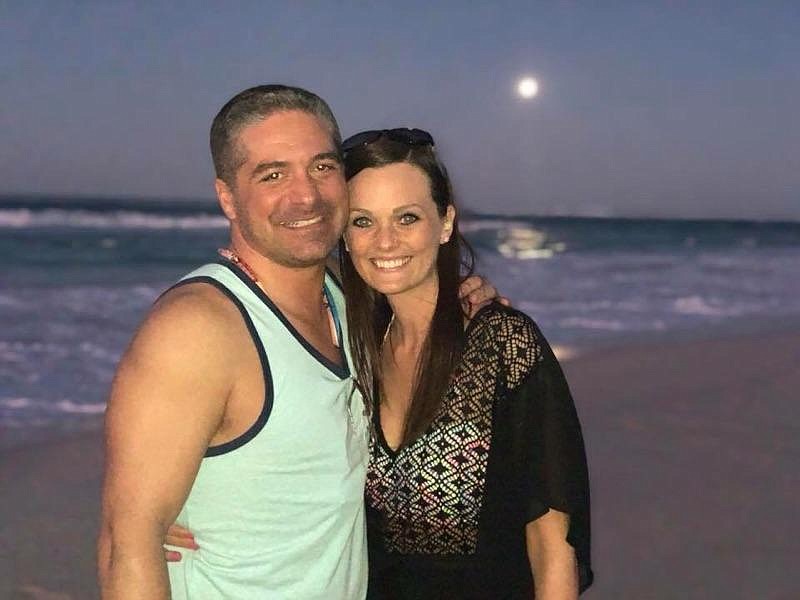Wife uses CPR to save firefighter
COEUR d’ALENE — Jessica Pichette learned cardiopulmonary resuscitation a decade ago while working at a child care center.
When she married Captain Luke Pichette of the Coeur d’Alene Fire Department, a man whose occupation centers around saving the lives of others, her limited CPR training seemed trifling.
Two days after Christmas, however, her husband’s life depended on the CPR lessons Jessica had learned long ago.
Luke Pichette suffered a heart attack Dec. 27 at the couple’s Hayden home, and for almost seven minutes as she waited for Kootenai County deputies and members of Northern Lakes Fire District to arrive, Jessica alone — scared and fighting to retain composure — performed the life-saving procedure over and over again.
Arriving rescue units rushed to the couple’s bedroom, continued CPR, twice used a defibrillator and raced Pichette to the hospital.
At Tuesday’s Coeur d’Alene City Council meeting Jessica and members of the Kootenai County Sheriff’s Office, Northern Lakes Fire and 911 dispatchers were recognized for helping save the fire captain’s life.
“They didn’t just come and do their job because it was Capt. Pichette,” Fire Chief Kenny Gabriel said. “They do it every day. Today they just (are being) recognized for it.”
The Coeur d’Alene department awarded Deputy Cody Ragan and 911 dispatcher Jenee Nixon life saving awards, along with Northern Lakes paramedic firefighter Bill Daniels and Garrett Kitterman, Engineer Bob Jaeger, Capt. Scott Hochberger and Acting Battalion Chief Bill Clifford. Deputies Pete Bixby, Kevin Mumford and Mark Ellis, as well as Tina Tipke, Kyla Asher and Lindsey Robinson were presented with awards of merit for assisting in the race to keep Luke Pichette alive.
Luke and Jessica were in bed around 10 p.m., it was dark, when Jessica said she heard her husband make a strange noise and slump over.
For a brief moment she thought he was pulling her leg.
He does that.
“He’s just a joker,” Gabriel said.
This was different. Jessica turned on a light, heard Luke take a deep gasp and saw his eyes roll back.
“That’s when I knew he wasn’t breathing,” Jessica said.
She remembered Luke’s advice about CPR: Do it hard.
She dragged him off the bed onto the floor and held her cell phone in the crook of her neck — and while alternately pumping on Luke’s chest, and blowing air into his lungs, she listened to the calming voice of dispatcher Jenee Nixon, who gathered information, got crews rolling, and continued to calm Jessica.
“I was tired, but I knew I couldn’t stop,” she said.
When he arrived before medical and fire crews, Ragan took over for Jessica.
Luke is back at work, thankful for the men and women who helped steer the last bit of his life through a U-turn, to a full recovery.
“It’s a miracle,” Deputy Chief Tom Greif said. “If you look at the percentages out there.”
The first four to six minutes are the most crucial, Greif said.
“Every minute after that survivability goes down dramatically,” he said.
Luke is thankful for everyone who helped ensure he is among the living.
“They did what they always do, they are professional they took care of business,” he said. “I thank them, they did an amazing job.”
And although Jessica is slowly starting to learn that she can leave her husband alone and things will be OK, it has taken a while to get to this point.
“We’re getting past it,” she said.
Her husband turned 41 in the hospital, and the couple celebrated their first anniversary as he recovered.
Luke is still amazed at Jessica’s grit.
“I would love for my wife to not have had to deal with that,” he said.
“I’m amazed, I’m impressed. Without her I wouldn’t be here.”



